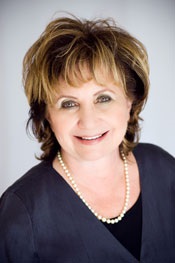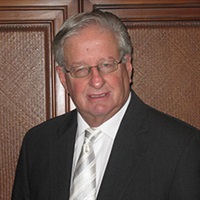EP95 Panel 12 - Children and Adolescents - Claudia Black, PhD; Stella Chess, MD; Cloe Madanes, Lic. Psychol.; Donald Meichenbaum, PhD
- Average Rating:
- Not yet rated
- Topic Areas:
- Topical Panels | Children and Adolescent Therapy | Psychotherapy | Family Therapy | Strategic Therapy
- Categories:
- Evolution of Psychotherapy | Evolution of Psychotherapy 1995 | Pioneers in Couples and Family Therapy
- Faculty:
- Claudia Black, PhD | Stella Chess, MD | Cloe Madanes, HDL, LIC | Donald Meichenbaum, PhD
- Duration:
- 55:37
- Format:
- Audio Only
- Original Program Date:
- Dec 15, 1995
- License:
- Never Expires.
Description
Description: This panel focuses on children’s mental health in high-risk environments, with experts presenting strategies across developmental, systemic, and therapeutic domains. Topics include the impact of addiction on children, symptom function in youth, the role of temperament in treatment, and the importance of early academic success. Case studies and creative interventions are shared, alongside calls for community-based solutions, culturally sensitive parenting programs, peer counseling, and school engagement to support resilience and long-term well-being.
Moderated by Brent Geary, PhD.
Educational Objectives:
- To compare and contrast clinical and philosophical perspectives of experts.
*Sessions may be edited for content and to preserve confidentiality*
Credits
Handouts
| Timestamped Transcript (736.9 KB) | 16 Pages | Available after Purchase |
| Ericksonian Learning Snapshot (247.1 KB) | 2 Pages | Available after Purchase |
Faculty

Claudia Black, PhD Related Seminars and Products
Claudia Black, Ph.D., is internationally recognized for her pioneering and cutting-edge work with family systems and addictive disorders. Her work with children impacted by drug and alcohol addiction in the late 1970s fueled the advancement of the codependency and developmental trauma fields. Dr. Black’s passion to help young adults overcome obstacles and strengthen families built the foundation of the Claudia Black Young Adult Center. Not only is Dr. Black the clinical architect of this groundbreaking treatment program, she is also actively involved with the treatment team, patients, and their families.
Claudia is the author of It Will Never Happen To Me, Changing Course, My Dad Loves Me, My Dad Has A Disease, Repeat After Me, It's Never Too Late To Have A Happy Childhood, Relapse Toolkit, A Hole in the Sidewalk, Depression Strategies, Straight Talk, The Stamp Game, Family Strategies, Anger Strategies, Deceived: Facing Sexual Betrayal, Lies and Secrets, The Truth Begins With Youand her newest title, Intimate Treason: Healing the Trauma for Partners Confronting Sex Addiction. She has produced seven audio CDs addressing issues of addiction and recovery. They are A Time for Healing, Putting the Past Behind, Triggers, Emotional Baggage, Trauma in the Addicted Family, Imageries and Letting Go Imageries. She also has over 20 DVDs for professionals to use working with families and clients.

Stella Chess, MD Related Seminars and Products
Stella Chess, MD, was a Full Professor in Child Psychiatry at the Department of Psychiatry, New York University Medical Center. She received her M.D. in 1939 from the New York University College of Medicine. Dr. Chess was a Fellow of the American Psychiatric Association and a Life Fellow of the American Orthopsychiatric Association. She has served on a number of editorial boards of prestigious journals; has received a number of research grants; and has been awarded distinguished honors from professional organizations and governmental agencies. Dr. Chess has authored, edited, or co-authored 16 professional books and 150 articles and chapters. She is renowned for her contributions to child psychiatry, especially in the study of temperament.

Cloe Madanes, HDL, LIC Related Seminars and Products
Cloé Madanes, HDL, LIC, is a world-renowned innovator and teacher of family and strategic therapy and one of the originators of the strategic approach to family therapy. She has authored seven books that are classics in the field: Strategic Family Therapy; Behind the One-Way Mirror; Sex, Love and Violence; The Violence of Men; The Secret Meaning of Money; The Therapist as Humanist, Social Activist and Systemic Thinker; and Relationship Breakthrough. She has presented her work at professional conferences all over the world and has given keynote addresses for The Evolution of Psychotherapy Conference, the American Association of Marriage and Family Therapy; the National Association of Social Workers, The Erickson Foundation, the California Psychological Association and many other national and international conferences. Madanes has won several awards for distinguished contribution to psychology and has counseled outstanding individuals from all walks of life.

Donald Meichenbaum, PhD Related Seminars and Products
Donald Meichenbaum, Ph.D in Clinical Psychology is currently Research Director of Melissa Institute for Violence Prevention, Miami (melissainstitute.org). He is one of the founders of cognitive behavior therapy. He was voted one of the most influential psychotherapists of the 20th century. Latest books include "Roadmap to Resilience" (www.roadmaptoresilience.com) and "Evolution of Cognitive Behavior Therapy: A Personal and Professional Journey."


